(Written by William)
Recently, I have been a guest on The Bricks King Podcast for several of their episodes, which gave me the idea to share some of my thoughts on LEGO podcasts and podcasting in general. This is not the first podcast I have been a guest on, nor is it the first time I’ve talked about LEGO in a podcast format, but working with The Bricks King is the most I have collaborated with a single podcast, giving me some deeper insights into podcasting. 🙂

Podcasting has become huge in the past few years. No matter what subject you are interested in, chances are there is a podcast about it already, just waiting for you to tune in. Some podcasts are more successful than others, and some done at a higher quality level than others, but the point is that there are plenty of podcasts to choose from to fulfill your interests. However, it is interesting to note, that when it comes to the LEGO hobby, there are very few podcasts currently available. In fact, when we talked about LEGO podcasts previously (see: The Best LEGO Podcasts for LEGO Fans), there were only a couple of them active.
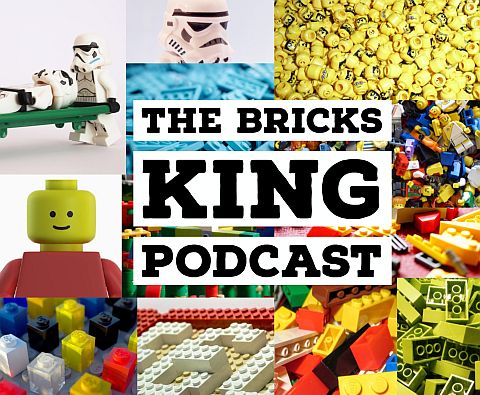
I strongly believe that we need better representation of the LEGO hobby in the podcasting realm, so when Matt King from The Bricks King Podcast contacted us, I jumped on the opportunity to be a guest on their show. Working closely with a podcaster made it more clear to me the challenges podcasters face, some of the reasons why podcasting is still uncommon in the LEGO hobby, and how LEGO fans could help make a difference.
Let’s start out by saying that podcasting is not easy. The host of the podcast needs to have a lot of drive to get their channel up and off the ground. They need to have some basic technical knowledge and at least some half-decent equipment to begin with. Once the channel is up and running, the host will have to continually provide current and relevant topics within their particular niche. In addition, because of the nature of the podcasting platform, the host has to have the courage to put him or herself out there in what is technically a vulnerable position. As I said, it’s not something that you can just do half-heartedly.
Even after setting up a channel, and having a steady flow of relevant topics, a podcast still needs one more ingredient; listeners. Without an audience, a podcast is hardly more than an audio diary. Don’t get me wrong, audio diaries are fun and all, but that’s a lot of work for very little return. While skills and equipment are important, it is the fan-base that’s the lifeblood of a podcast. Fans give the host the motivation they need to keep things running. In fact, a lot of podcasters look at their stats regularly to assure themselves that people are indeed paying attention.
If you are a fan of a podcast, there are some things you can do to make sure the host knows you appreciate their work. Don’t worry, I’m not asking you to volunteer to be a guest on a podcast, or to donate a fortune (although I’m not discouraging you either), rather, I wanted to make sure you know there are small ways you can show your support. For example, liking and sharing a podcast or specific podcast episodes is one of the best things you can do. Whether you know it or not, you have a reputation. People connected to you via the multitude of social media platforms consider your opinion to be worth something. I’m not saying you need to be the hub of news for everyone that follows you, but you bring a degree of weight. And, sharing a podcast plants a seed in peoples’ minds that can definitely help make the channel more popular.
Then, there are reviews, comments and questions. These are the best ways to make the podcast you listen to a vibrant and thriving place for discussion. By sharing your thoughts, you give feedback and ideas to the host about what their audience would like to hear. This keeps them motivated and helps them plan future episodes. Covering relevant topics can also raise the overall quality of the podcast. And, if you still want to do more for your favorite podcast, and you have some knowledge about the particular niche they cover, you can also offer to be interviewed. Finally, if you are super passionate about a hobby, you might even consider starting your own podcast.
The point is that you, as a fan, have a degree of ownership in the podcasts you listen to. It is your interest and interaction that keeps them going, and it is your feedback that make them evolve. People who host podcasts or are guests on podcasts (like myself) are thrilled when a community forms around their discussions. Unfortunately, many listeners will tune off (both mentally and literally) when a podcast’s host goes through the whole spiel of how to support them. So, I thought by having just a little insight into what these things (likes, shares, comments, etc.) mean to a podcast, you might get inspired to participate more.
So, please support your favorite LEGO podcasts out there. They are too few and far between. It doesn’t have to be The Bricks King Podcast just because I’ve been a guest on it. Just chose the one you like the best and interact with them a little, so they know you appreciate their work. As Matt from The Bricks King Podcast would say, “Let’s build on it!”. And if you have never listened to a LEGO podcast before, I have included the episodes I participated in at the Bricks King Podcast. And you can also go to their podcast page directly to listen to the other episodes. They are great to listen to while building, sorting your LEGO bricks, doing some work around the house, or driving. Hope you enjoy!
What do you think? Do you listen to LEGO podcasts? Which one is your favorite? And have you ever participated on a podcast as a guest? Or do you have your own podcast? Feel free to share your thoughts and own experiences in the comment section below! 😉
And you might also like to check out the following related post:



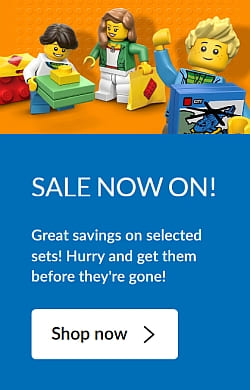

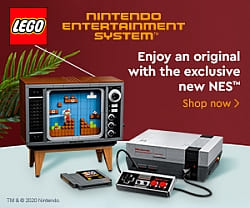


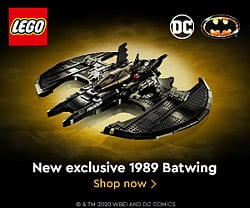
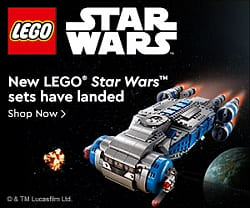
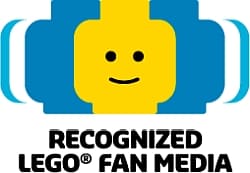

Thanks for the informative article. I plan to listen to your podcasts and probably the other episodes too. Nice writeup about a subject I didn’t know much about.
Very interesting episode about the Hulkbuster! I will listen to the other ones too. Thanks for sharing!
I will definitely listen to these episodes! I didn’t even know there were any lego podcasts!
I already listen to podcasts when building or sorting, but I haven’t thought of listening to Lego podcasts. I will try next time.
I think there are not enough podcasts in the hobby because it is so visual and hands on. Most fans I know are either building or watching or reading reviews, building techniques, etc. But I could see that podcasts can have space too. Thanks for listing the ways we can support them. I suppose the same is true for youtube channels and blogs too. Liking, commenting, sharing.
You know, when I wrote my portion of this blog about how to support content creators, I almost did an opinion piece about why podcasts are so hard for LEGO enthusiasts. And the top point is exactly what you brought up. It is a hobby that lends itself to a more visual medium.
I’m a fast reader, so for me podcasts generally seem less time-efficient.
Also, possibly because English is a learned language to me, I find that I miss out on quite a bit without subtitles. It might be a question of accustoming myself, though.
No, you have a very valid point. From what I hear those people who have English as a secondary or later language tend to be better with the written word.
There are certain inflections and colloquialisms that appear more in the spoken language than their written counter part.
Plus the written word is also better about following the rules of language than someone who speaks it. Granted, many social media platforms have given birth to a whole new form of writing that I can’t say is English. ;D
The Germans have coined the beautiful terms Abstandsprache and Ausbausprache…
https://en.wikipedia.org/wiki/Abstand_and_ausbau_languages